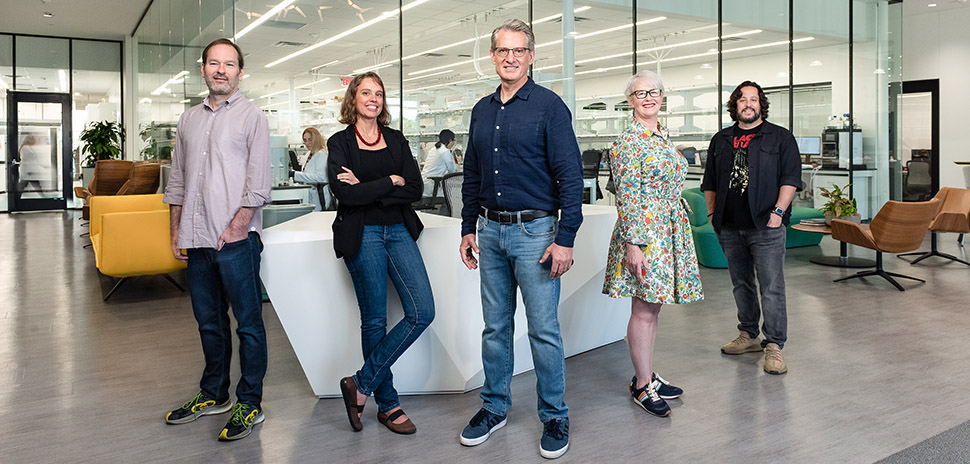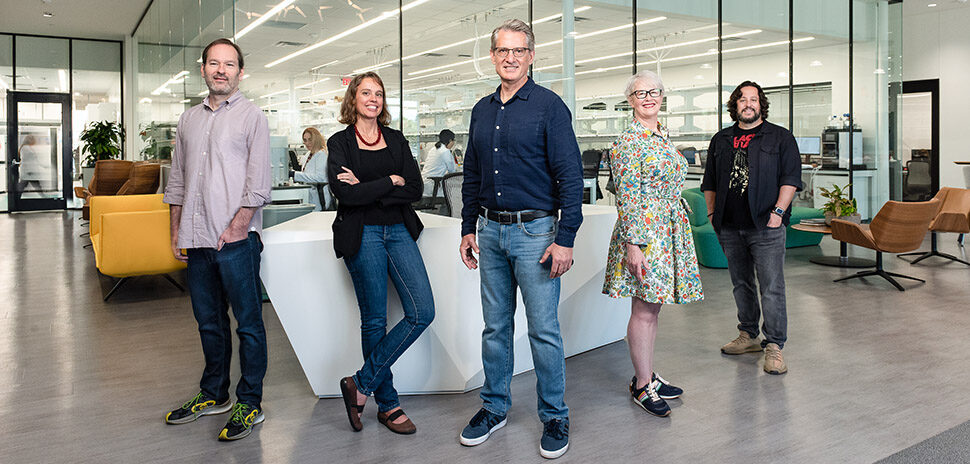Dallas-based computational life sciences solutions provider Form Bio announced the availability of Google Cloud’s innovative AI-based models for healthcare and life sciences research as “point-and-click” workflows via its bioinformatics platform.
Form Bio, a Google Cloud Premier Partner, aids companies in leveraging Google Cloud’s Multiomics Suite, which was announced last year. Dallas Innovates previously wrote about Google Cloud’s unveiling of its Multinomics Suite and the selection of Colossal Biosciences spinout Form Bio to help other organizations adopt it.
“Bringing Form Bio to Google Cloud Marketplace will help life science professionals quickly deploy and manage omics models on Google Cloud’s trusted, global infrastructure,” Dai Vu, managing director, marketplace & ISV GTM programs at Google Cloud, said in a statement. “Form Bio can now securely scale and support customers on their digital transformation journeys.”
Providing a point-and-click pathway
Form Bio said it now provides a path for Google Cloud’s Vertex AI-based omics models to be used on a point-and-click basis.
The branches of science known as omics are disciplines in biology whose names end in the suffix -omics, such as genomics, proteomics, metabolomics, metagenomics, phenomics, and transcriptomics.
Form Bio said its “comprehensive and easy to use” cloud-based bioinformatics platform is now available on Google Cloud Marketplace, allowing life science professionals to utilize its AI solutions on Google Cloud’s “trusted, global infrastructure.”
Reducing barriers for bench science operations
Google Cloud’s advanced AI/machine learning models provide life sciences researchers a variety of capabilities for analyzing and transforming large biological datasets via deep learning, neural networks, and more, Form Bio noted.
The company said that while already available and executable via code repository and containerization solutions, the same Google Cloud models now can be run with just a few clicks on Form Bio’s informatics platform.
That reduces the barriers between bench science operations and Google Cloud’s sophisticated AI/ML innovations, Form Bio said.
New AI-based omics models
Several of the models pertain to variant calling, which the National Institutes of Health defines as the process of identifying genetic variants, distinguishing true mutations from experimental errors.
Form Bio said that examples of the AI-based omics models now available via the company include:
- DeepVariant: A deep learning-based variant caller that takes aligned reads (in BAM or CRAM format), produces pileup image tensors from them, classifies each tensor using a convolutional neural network, and reports the results in a standard VCF or gVCF file.
- DeepSomatic: An extension of deep learning-based variant caller DeepVariant that takes aligned reads (in BAM or CRAM format) from tumor and normal data, produces pileup image tensors from them, classifies each tensor using a convolutional neural network, and finally reports somatic variants in a standard VCF or gVCF file. DeepSomatic supports somatic variant-calling from tumor-normal sequencing data.
- DeepTrio: An extension of DeepVariant intended for variant calling of trios or duos. The main advantage of DeepTrio is that genetic inheritance is considered by a neural network for calling variants in trio samples. Also, variant candidates are generated from all samples at once, which ensures a genotype call is made for any position in the trio with a variant. Since DeepTrio is built on top of DeepVariant, general information for DeepVariant also applies to DeepTrio.
- DeepVariant for RNA-seq: An extension of DeepVariant, a deep-learning-based variant caller, to learn and account for the unique challenges presented by RNA-seq data. The DeepVariant RNA-seq model produces highly accurate variant calls from RNA-sequencing data and outperforms existing approaches such as Platypus and GATK.
- DeepConsensus: An alignment-based loss to train a gap-aware transformer–encoder for sequence correction. DeepConsensus uses gap-aware sequence transformers to correct errors in Pacific Biosciences (PacBio) Circular Consensus Sequencing (CCS) data. This results in greater yield of high-quality reads.
- DeepPolisher: A transformer-based sequencing correction method similar to DeepConsensus. DeepPolisher is designed to identify errors in genome assemblies. DeepPolisher takes haplotype-specific reads aligned to phased assemblies and produces a VCF file containing potential errors in the assembly.
- AlphaFold Protein Structure Prediction: A deep learning-based protein structure prediction system developed by Google DeepMind. AlphaFold can help predict protein structures with remarkable speed and accuracy and has outperformed other methods in several protein structure prediction challenges.
Form Bio said these models help scientists make more use of increasingly vast amounts of biological data while speeding up computational aspects of their research.
![]()
Get on the list.
Dallas Innovates, every day.
Sign up to keep your eye on what’s new and next in Dallas-Fort Worth, every day.


































































